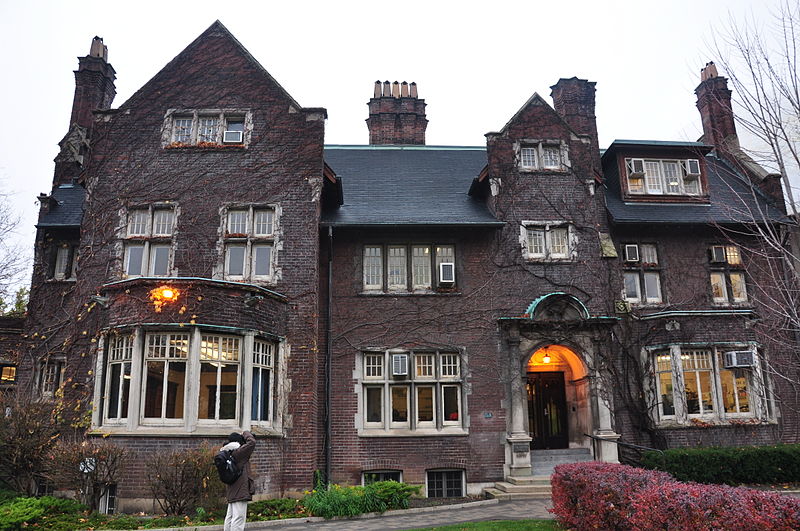This is the first of many articles about what goes on behind closed doors at that most august of assemblies known as the Faculty Council. The first insight I have to share is that these doors appear to be genuinely open to all. Dean Moran was very welcoming of this UV reporter, and I’m certain that any student who is interested in attending Faculty Council will be received warmly, and you would not be alone. Apart from myself, a large portion of the academic side of the SLS was there to observe, ask questions, and enjoy the delicious free food. Seriously, the food was ample, enjoyable, and of noticeably higher quality than what is found in the standard “free” lunches we have all become accustomed to. The roasted vegetable sandwiches were topped with goat cheese and the salad included a slivered almond garnish, to name only a few of the more notable differences.
After moving through uncontroversial updates from the Dean and student society presidents, we reached Ben Alarie’s much more contentious report on the new admission criteria. Alarie outlined the new admissions system and highlighted some of the effects it had on this year’s entering class. The most significant change he discussed was the new role that personal statements play in the admission process. The previous system relied extensively on GPA and LSAT scores to determine which files were auto-admitted, which were auto-denied, and which would be read holistically. Now GPA and LSAT account for two thirds of an applicant’s score, while the remaining third is based on their personal statement, which is read by three to six members of the admissions committee. Under the new formula, no candidate can be assured acceptance, and any candidate who could possibly be considered for admission based on their GPA and LSAT will have their file read. Automatic rejections are given only to those applicants who could not reach the admission threshold even if they were to score 100% on their personal statement.
The second significant change in the admissions policy is that GPAs are now weighted based on the performance of past U of T law students from the same program and university. Specifically, they are adjusted based on previous student performance in first year compared how well the admissions committee expected them to perform. One notable effect of this system is that while the “real” median GPA of the incoming class has decreased slightly (down one percent to 85%), the weighted GPA has increased to 89%, a gain Alarie is quite proud of. He also attributes the significant increase of students from undergraduate programs at U of T (46, up from 34 last year) to the new weighting system. U of T is well known for its strict marking, and it appears to have been disadvantaging previous applicants from the school in previous years.
Professor Alarie’s presentation was met with a barrage of questions from faculty and students. It seems that while new buildings and student societies don’t pique the council’s interest, they are actively concerned with who comes (and who is allowed to come) to our school. The discussion felt honest and informative, but was unfortunately cut short due to time constraints. The questions centered around two general areas of concern: the fairness of putting so much emphasis on personal statements, and worry over the effects the new criteria appeared to be having on diversity amongst the incoming class. The deans appeared to be conscious of these issues, and promised to keep a close eye on whether personal statements proved to be a good indicator of success at U of T. In the short term, it was pointed out that applicants also have to fill out a personal sketch with verifiers that could be used to try to detect cheating if red flags appeared in a given application.
Concerns over diversity seemed to arise principally from the fact that the percentage of visible minorities in the incoming class decreased to 31% (from an average of 35% over the last 3 years). Alarie cautioned about drawing too many inferences from a single year of data, noting that the difference might simply be caused by the particularities of this year’s applicant pool. This point is a fair one to make; for example, the same proportion of the 2011/12 class consisted of visible minorities. Still, there was some (understandable) confirmation bias in Alarie talking up all the significant achievements of the new system while downplaying any negatives as statistically non-significant. Overall, I was impressed with the meeting. I expected a relatively bland hour and half of updates about what was going on at the school, and I was treated to a faculty and student body who were actively concerned about the future of this school. It will take at least a few more years before we can say to any degree of certainty what the effects of the new admission system are, but it was comforting to see the issue taken seriously at all levels. The next meeting is scheduled for November 27th, for any who want to mark it in their calendars.






